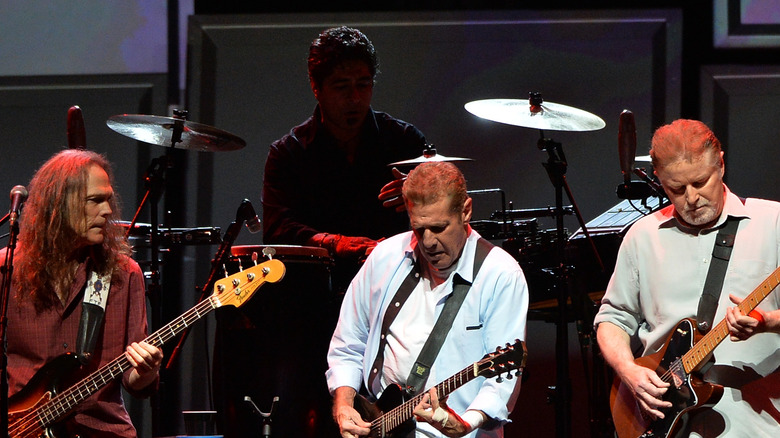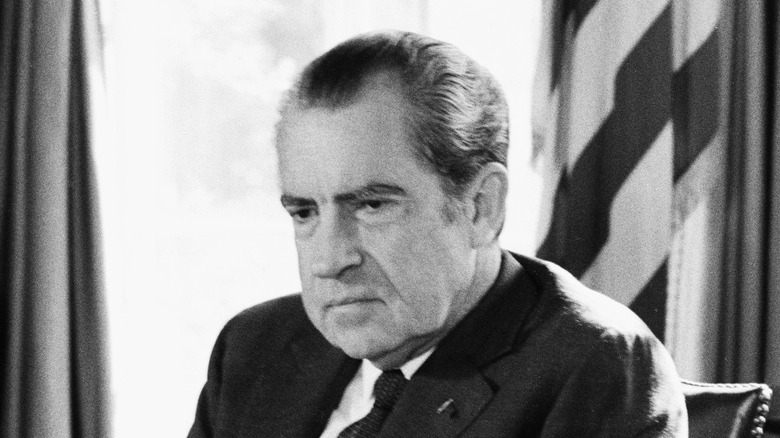The Real Meaning Behind On The Border By The Eagles
The Eagles have enjoyed an impressive degree of longevity since their formation in 1971, surviving many of the pitfalls that bands that old face, such as the departures of founding members and changing public tastes. Their songs have often had relatively innocuous lyrics with sometimes dark and/or real-world meanings behind them (via The New York Times). "On the Border," the song for which the band's third studio album was named, is no exception to this.
The lyrics themselves paint a picture of a person already plagued by struggles who must also contend with "big brother" as an intrusive force on their life (via Song Meanings and Facts). The song mostly keeps from outright discussing contemporary politics, to the point that Eagles singer Don Henley admitted in an interview with Rolling Stone that he feared it was too incoherent. Given that the song was released in 1974, however, it seems relatively clear that the intent was to reference Watergate and Nixon's response to it (which Henley verifies in the aforementioned interview).
On the Border reflects the frustration and apathy caused by Watergate
The Watergate scandal represented a massive short and long-term collapse of confidence in the government, as it seemed that politicians could bypass procedure and the limits of their power with impunity (via I Love Classic Rock). According to Pew Research, Nixon had won the presidency by a wide margin and had an approval rating of 68% by 1973. Once the crisis and his role in its cover-up became public, however, his approval plummeted.
However, as CNN reports, even the Democrats, the targets of the Watergate spying, could not capitalize on any public empathy due to the apathy that had been fostered by the affair. "On the Border" best reflects this with the subtle (volume-wise) line "Say goodnight, Dick," a phrase that at the time referenced what many saw as Nixon's impending impeachment (via Songfacts). This was realized just a few months after the song's release, though Nixon's pardoning by President Ford likely further validated the song's message.

